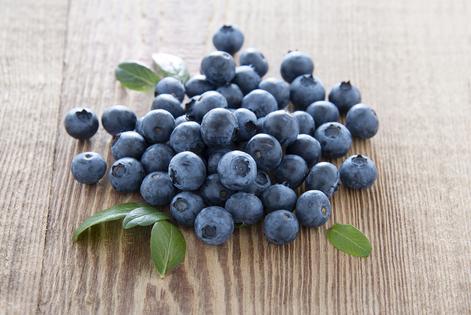3 reasons to eat blueberries
Published in Health & Fitness
Even through ever-changing nutrition science and trends that come and go, blueberries continue to be viewed as a powerhouse — and for good reason. Multiple studies have linked blueberries with healthier aging, better memory, decreased inflammation and more. Keep reading to learn about blueberry nutrition, why they’re so good for you and how to enjoy them in your diet.
Blueberry nutrition
Compared to many other fruits, blueberries contain less naturally occurring sugar.
Wild blueberries are smaller than cultivated blueberries, but they pack a punch of blueberry flavor and nutrition. Wild blueberries have twice the antioxidant capacity of ordinary blueberries.
Frozen blueberries are a great option for when fresh berries are not in season. They are picked and frozen at peak ripeness, which also means peak nutrition. Their texture changes slightly as they thaw, but frozen berries are perfect for smoothies, baking and parfaits.
Healthy aging
A diet rich in fruits and vegetables helps stave off age-related disease and cognitive decline, along with many other chronic illnesses. Blueberries, in particular, have a reputation for being jam-packed with antioxidants compared to other common fruits. Antioxidants are compounds that protect against the oxidative cell damage that naturally occurs with age, chronic sun exposure, environmental toxins and stress.
One recent study, published in The Journals of Gerontology, compared people who were given a daily drink with 11 grams wild blueberry powder to those who got an antioxidant-extract drink supplemented with fiber. After a month, the people who got the wild blueberries had better blood flow, and their immune response got more of a boost.
Memory
Whether you’re worried about Alzheimer’s disease or dementia or just want to stay sharp, blueberries may help you. Flavonoids, including the anthocyanins in blueberries, protect and strengthen connections between neurons, making it easier for them to communicate.
To help your memory, you may want to try the MIND diet (which includes blueberries). The MIND diet is a fusion of the heart-healthy DASH diet and the all-star Mediterranean diet. Together, they form an eating pattern that can help keep you sharp.
Heart health
Blueberries aren’t just brain food, as it turns out. Research conducted at King’s College in London studied the effects of eating blueberries on heart health and cardiovascular disease. In just one month, there were significant improvements in blood clotting and blood vessel function. The researchers suspect that anthocyanins, the pigments that give blueberries their color, interact with other compounds in the berries to confer these benefits.
Bottom line
All things considered, the tiny but mighty blueberry has some major health benefits. Whether you enjoy them fresh, blended into smoothies or baked into a whole-grain muffin, there are plenty of reasons to get your fill. With their potential benefits to aging, memory and heart health, we continue to believe in the power of blueberries.
(EatingWell is a magazine and website devoted to healthy eating as a way of life. Online at www.eatingwell.com.)







Comments